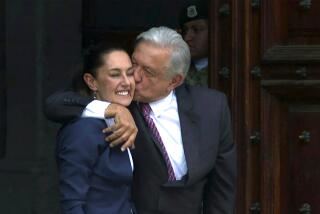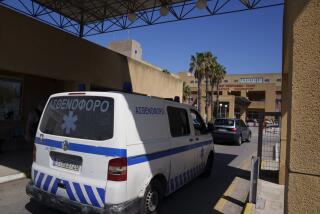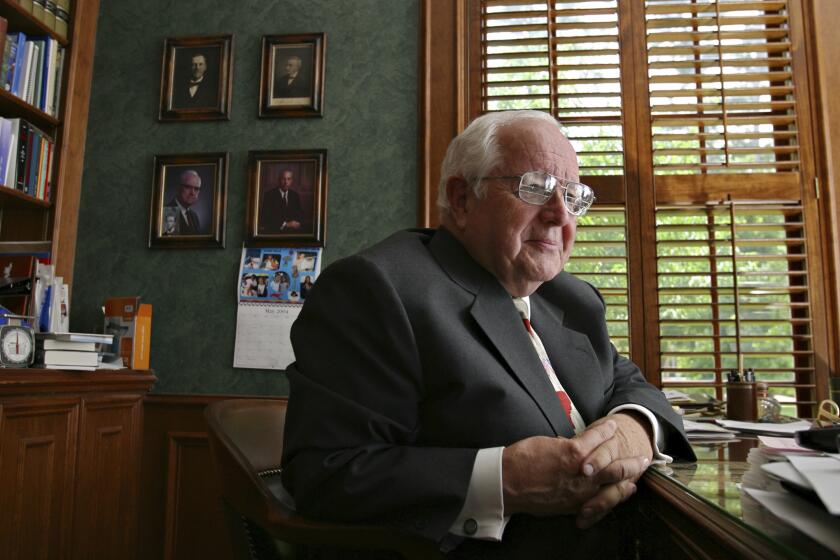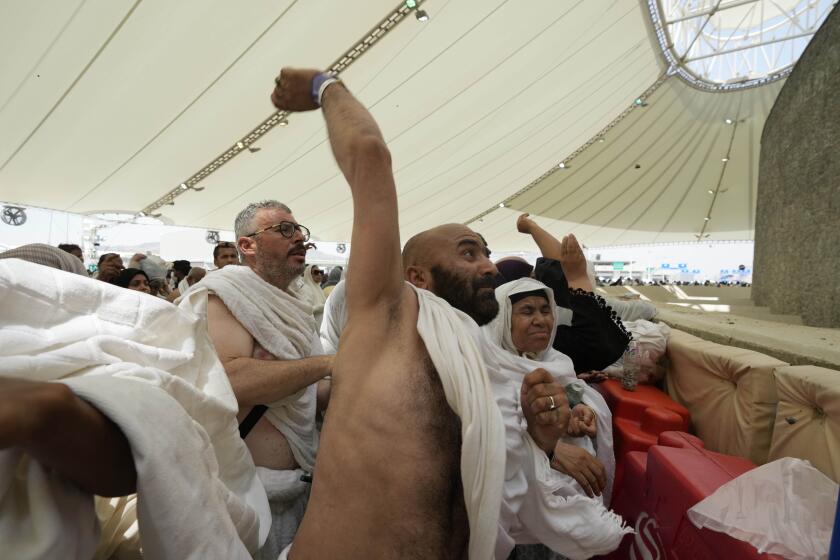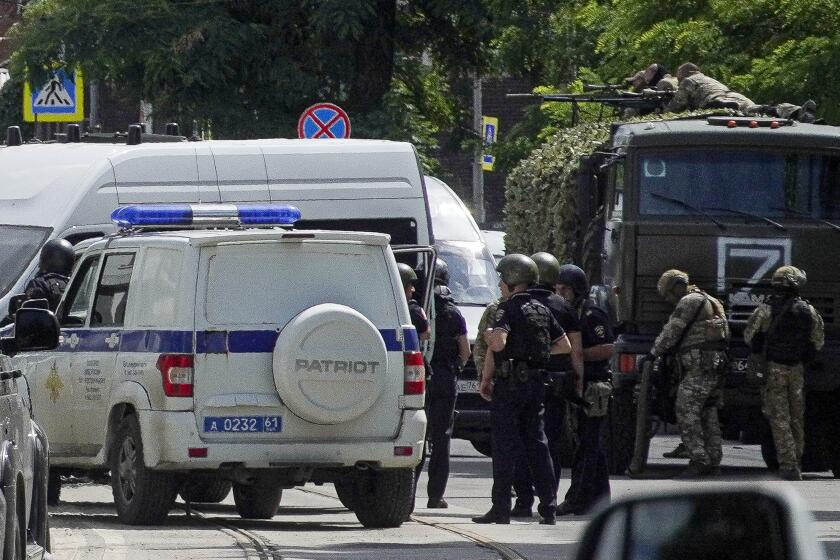Violence Feared Over Settlers in E. Jerusalem
Israeli Prime Minister Benjamin Netanyahu on Wednesday failed to defuse a crisis sparked by Jewish settlers who moved into two East Jerusalem buildings, and Palestinian Authority President Yasser Arafat warned of a “very negative reaction” if the settlers are not removed soon.
Underlining the potential for violence, scuffles broke out late Wednesday between heavily armed police and scores of angry Palestinians just yards from the settlers’ barricaded compound.
Five Palestinians were reported hurt and four others arrested, along with two right-wing Israelis.
The growing crisis has split Netanyahu’s governing coalition, with some members urging him to order the settlers forcibly removed from the Palestinian neighborhood of Ras al Amud and others all but threatening to bolt the government if he does.
Aides say the politically explosive situation with the Palestinians will not allow him to leave the three families of settlers where they are.
“We would like to avoid a confrontation that would result in their eviction by force,” said David Bar-Illan, a spokesman for Netanyahu. “But they are not going to be allowed to stay as tenants in that place. That’s clear.”
Backed by dozens of conservative supporters, the 11 settlers so far have refused to leave.
Their American landlord, Miami millionaire Irving Moskowitz, asked the Israeli Supreme Court on Wednesday to bar police from evicting them. The court is expected to rule on the request today.
The crisis has left Netanyahu squeezed between competing pressures.
Within hours of the settlers’ arrival Sunday night, the prime minister denounced their move.
But their continuing presence in Ras al Amud, along with reports in the Israeli media that Netanyahu knew of their intentions before they moved in, have fueled Palestinian outrage and suspicions.
Bar-Illan confirmed Wednesday that Internal Security Minister Avigdor Kahalani told a Sept. 5 Cabinet meeting that Jewish settlers might try to move into buildings in Ras al Amud.
The meeting was held the day after three bombers killed themselves and five Israelis in downtown Jerusalem, and hours after a failed commando raid left 12 Israeli soldiers dead in southern Lebanon.
Bar-Illan said Netanyahu “was not aware” of the political and security implications of the Ras al Amud report.
Many Palestinians say they fear that the new settlement--established in homes that Moskowitz purchased from Arabs--is intended to preempt any chance of Palestinians establishing a future capital in traditionally Arab East Jerusalem.
“The only solution for this obvious provocation is to evacuate all the settlers immediately,” said Ahmad Tibi, a close advisor to Arafat. “This is a serious violation of the peace agreements and a clear signal of the intentions of Mr. Netanyahu and his government not to continue with the peace process.”
In the Gaza Strip, Arafat warned of potential violence.
“We hope that this will be solved very quickly,” the Palestinian leader told reporters outside his headquarters. “Otherwise there will be a very negative reaction.”
The tensions erupted just as the tattered relationship between Israel and the Palestinians seemed to be improving.
A visit by Secretary of State Madeleine Albright last week helped persuade the Palestinians to cooperate more fully with Israel on security issues. In turn, Israel began to release more than $35 million in tax revenue it owed the Palestinian Authority and eased travel restrictions imposed on Palestinians after the bombings.
Moskowitz also has plans to build a Jewish housing complex in Ras al Amud, a densely populated neighborhood between Jerusalem’s Old City and the Jewish cemetery on the Mount of Olives.
The retired physician and developer has given millions of dollars to support Jewish settlement in the West Bank and East Jerusalem.
Citing security and political concerns, Netanyahu has vowed to block the construction.
But Moskowitz showed no signs of backing down on his plans for the neighborhood or in the latest crisis.
“We have come back to our home,” he said in an interview with a conservative Israeli radio station.
Inside the compound, decorated with Israeli flags and covered with a yellow tarpaulin to guard against stones, the settlers and their supporters Wednesday worked to renovate one of the buildings and moved in furniture and extra mattresses.
Yossi Kaufman, a spokesman for the group, said the settlers might be willing to leave if Netanyahu allowed construction to begin.
“Our goal is not this house,” he explained. “Our goal is to build a Jewish neighborhood here, and we are making the facts on the ground.”
Times staff writer Marjorie Miller in Jerusalem contributed to this report.
More to Read
Start your day right
Sign up for Essential California for news, features and recommendations from the L.A. Times and beyond in your inbox six days a week.
You may occasionally receive promotional content from the Los Angeles Times.
